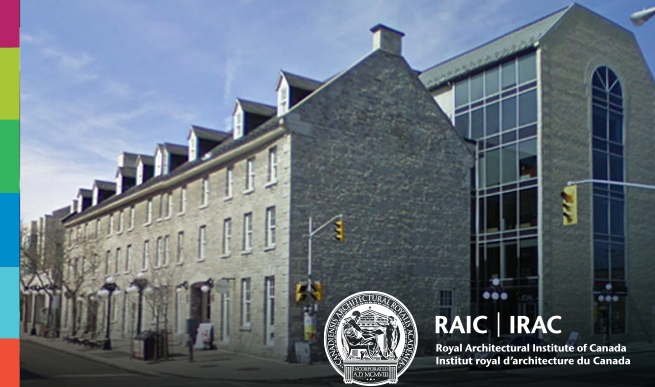![PhD and Postdoc Vacancies at Netherlands [UG]](https://scholaridea.com/wp-content/uploads/2020/07/University-of-Groningen.jpg)
PhD in Multiscale Modeling of Supramolecular Materials to develop predictive models to bridge the gap between simulations and experiments
Supramolecular and hybrid nanomaterials are attracting much interest in view of their potential applications in various branches of science and engineering. New experimental techniques are offering unprecedented opportunities in the design of new materials at the molecular scale, vastly outperforming materials currently in use. Yet, the exploration of the huge design space is a severe bottleneck, and computational models are needed to provide quantitative, predictive guidelines for material design. Multiscale modeling is required to bridge the spatiotemporal gap between computer simulations and engineering applications and to capture emergent behavior across spatiotemporal scales.
Polymeric materials in particular offer great flexibility in their molecular design. Complex new materials made of branched polymers or polymer nanocomposites have been recently emerging for novel medical and industrial applications thanks to their tunable properties, but the prediction of their macroscopic behaviour remains vastly unexplored from a computational point of view, particularly in out-of-equilibrium conditions of interest for experimental applications. The aim of this project is to use molecular dynamics simulations to link polymer architecture and functionality at the molecular scale to the material’s macroscopic properties like self-organisation, dynamics, and mechanical response. Our goal is to develop predictive models at multiple scales to bridge the gap between simulations and experiments. The project is highly interdisciplinary, with possible collaborations with several experimental groups in the Faculty of Science and Engineering. The aim outlined is rather broad, and the specific goals can be tuned based on the candidate interests, strengths and fit within the group.
As a PhD candidate, you are committed to conduct independent and original scientific research, to report on this research in international publications and presentations, and to present the results of the research in a PhD dissertation, to be completed within 4 years. You are expected to contribute 10% of the overall workload to teaching.
Qualifications
You are a highly motivated candidate with:
• a MSc degree in physics, chemistry, engineering, or other relevant subjects
• strong interest in computational research and material science
• demonstrable affinity with programming and/or computer simulations. Knowledge of Python and/or LAMMPS is a plus, but it is not required
• strong communication skills (in English).
Organisation
Founded in 1614, the University of Groningen enjoys an international reputation as a dynamic and innovative centre of higher education offering high-quality teaching and research. Flexible study programmes and academic career opportunities in a wide variety of disciplines encourage more than 36.000 students and researchers alike to develop their own individual talents.
This position is embedded in the micromechanics group of the Zernike Institute for Advanced Materials, at the interface between physics, chemistry, biology, and engineering. The mission of the micromechanics group is to develop new models and computational tools for the micromechanics of (bio)materials, and to employ these to develop relationships between the internal structure of a material and its mechanical and functional properties. More information on the Institute’s activities can be found at http://www.rug.nl/research/zernike/
Conditions of employment
We offer in accordance with the Collective Labour Agreement for Dutch Universities:
• a salary of € 2,443 in the first year to a maximum of € 3,122 gross per month in the final year (PhD salary scale), based on a full-time position
• a full-time position (1.0 FTE)
• a holiday allowance of 8% gross annual income
• an 8.3% year-end bonus.
The position is for four years. First you will be offered a temporary position of one year with the option of renewal for another three years. Prolongation of the contract is contingent on sufficient progress in the first year to indicate whether a successful completion of the PhD thesis within the contract period is to be expected. A PhD training programme is part of the agreement and the successful candidate will be enrolled in the Graduate School of Science and Engineering of the Faculty.
The starting date is in September 2022 or shortly thereafter
The conditions of employment are available at the University of Groningen website under Human Resources: https://www.rug.nl/about-us/work-with-us/
Application
Do you meet our qualification criteria? If yes, your application should include (please merge all documents into one PDF file):
• a cover letter with background and motivation to apply for this position (max 1 page)
• a curriculum vitae, including details of bachelor and master degrees, list of work experience as well as other skills and a publication list, if applicable
• a detailed (max 1 page) description of previous research experience, such as bachelor/master research projects. Indicate exactly your contribution
• contact details of 2 academic references who can provide information on your suitability for the position.
You may apply for this position until 31 May 2022 11:59pm / before 1 June 2022 Dutch local time (CET) by means of the application form (click “Apply” below the advertisement on the Groningen University website).
Selected candidates will be invited for a short online interview at the beginning of June.
The University of Groningen strives to be a university in which students and staff are respected and feel at home, regardless of differences in background, experiences, perspectives, and identities. We believe that working on our core values of inclusion and equality are a joint responsibility and we are constructively working on creating a socially safe environment. Diversity among students and staff members enriches academic debate and contributes to the quality of our teaching and research. We therefore invite applicants from underrepresented groups in particular to apply. For more information, see also our diversity policy webpage: https://www.rug.nl/(…)rsity-and-inclusion/
Our selection procedure follows the guidelines of the Recruitment code (NVP): https://www.nvp-hrnetwerk.nl/sollicitatiecode/ and European Commission’s European Code of Conduct for recruitment of researchers: https://euraxess.ec.europa.eu/jobs/charter/code
Unsolicited marketing is not appreciated.
Information
For information you can contact:
- Dr Andrea Giuntoli, a.giuntoli@rug.nl
Please do not use the e-mail address(es) above for applications.
![Postdoctoral and Research Opportunities at McGill University [CA]](https://scholaridea.com/wp-content/uploads/2020/06/mcgill-university-30-may-2019-768x402.jpg)

